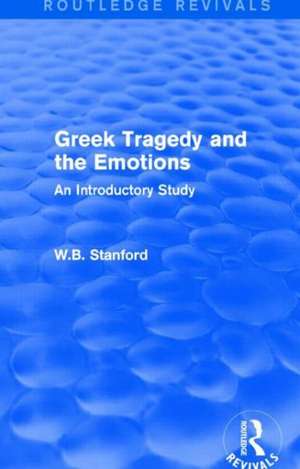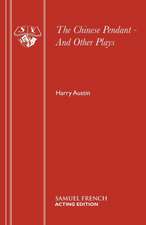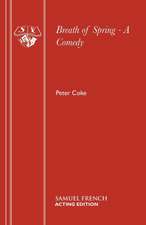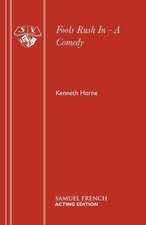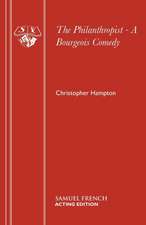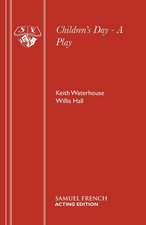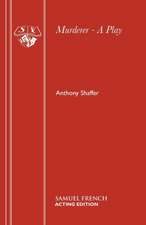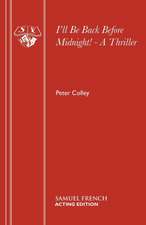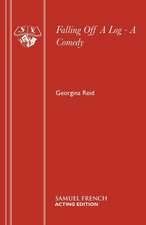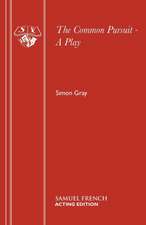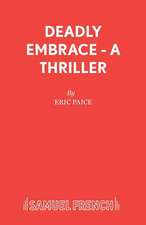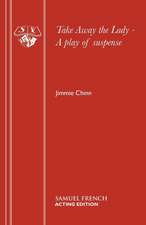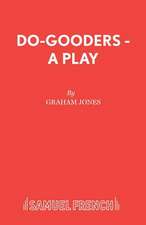Greek Tragedy and the Emotions (Routledge Revivals): An Introductory Study: Routledge Revivals
Autor W. Stanforden Limba Engleză Paperback – 12 iun 2015
In Greek Tragedy and the Emotions, first published in 1993, W.B. Stanford reviews the evidence for ‘emotionalism’ – as the great Attic playwrights presented it, as the actors and choruses expressed it, and as their audiences reacted to it. Sociological aspects of the issue are considered, and the whole range of emotions, not just ‘pity and fear’, is discussed. The aural, visual and stylistic methods of inciting emotion are analysed, and Aeschylus’ Oresteia is examined exclusively in terms of the emotions that it exploits. Finally, Stanford’s conclusions are contrasted with the accepted theories of tragic ‘catharsis’.
Greek terms are transliterated and all quotations are in translation, so Greek Tragedy and the Emotions will appeal particularly to those unfamiliar with Classical Greek.
Toate formatele și edițiile
| Toate formatele și edițiile | Preț | Express |
|---|---|---|
| Paperback (1) | 460.31 lei 43-57 zile | |
| Taylor & Francis – 12 iun 2015 | 460.31 lei 43-57 zile | |
| Hardback (1) | 1053.16 lei 43-57 zile | |
| Taylor & Francis – 12 dec 2013 | 1053.16 lei 43-57 zile |
Din seria Routledge Revivals
- 9%
 Preț: 801.69 lei
Preț: 801.69 lei - 8%
 Preț: 432.15 lei
Preț: 432.15 lei -
 Preț: 153.81 lei
Preț: 153.81 lei -
 Preț: 230.80 lei
Preț: 230.80 lei -
 Preț: 294.72 lei
Preț: 294.72 lei -
 Preț: 258.72 lei
Preț: 258.72 lei - 9%
 Preț: 764.34 lei
Preț: 764.34 lei - 9%
 Preț: 903.41 lei
Preț: 903.41 lei -
 Preț: 296.10 lei
Preț: 296.10 lei -
 Preț: 342.36 lei
Preț: 342.36 lei - 9%
 Preț: 606.35 lei
Preț: 606.35 lei -
 Preț: 317.54 lei
Preț: 317.54 lei - 9%
 Preț: 764.28 lei
Preț: 764.28 lei -
 Preț: 257.00 lei
Preț: 257.00 lei -
 Preț: 238.40 lei
Preț: 238.40 lei -
 Preț: 259.47 lei
Preț: 259.47 lei - 9%
 Preț: 903.80 lei
Preț: 903.80 lei -
 Preț: 326.26 lei
Preț: 326.26 lei -
 Preț: 258.66 lei
Preț: 258.66 lei -
 Preț: 294.97 lei
Preț: 294.97 lei -
 Preț: 308.89 lei
Preț: 308.89 lei -
 Preț: 199.85 lei
Preț: 199.85 lei -
 Preț: 347.49 lei
Preț: 347.49 lei -
 Preț: 295.04 lei
Preț: 295.04 lei -
 Preț: 389.39 lei
Preț: 389.39 lei -
 Preț: 257.00 lei
Preț: 257.00 lei -
 Preț: 343.21 lei
Preț: 343.21 lei - 9%
 Preț: 640.90 lei
Preț: 640.90 lei - 9%
 Preț: 619.48 lei
Preț: 619.48 lei -
 Preț: 228.88 lei
Preț: 228.88 lei -
 Preț: 257.67 lei
Preț: 257.67 lei -
 Preț: 245.10 lei
Preț: 245.10 lei -
 Preț: 258.52 lei
Preț: 258.52 lei -
 Preț: 258.72 lei
Preț: 258.72 lei -
 Preț: 368.93 lei
Preț: 368.93 lei -
 Preț: 246.37 lei
Preț: 246.37 lei - 9%
 Preț: 832.07 lei
Preț: 832.07 lei -
 Preț: 258.66 lei
Preț: 258.66 lei -
 Preț: 286.98 lei
Preț: 286.98 lei - 18%
 Preț: 695.85 lei
Preț: 695.85 lei - 9%
 Preț: 934.94 lei
Preț: 934.94 lei - 5%
 Preț: 231.22 lei
Preț: 231.22 lei -
 Preț: 267.15 lei
Preț: 267.15 lei -
 Preț: 200.66 lei
Preț: 200.66 lei - 9%
 Preț: 638.61 lei
Preț: 638.61 lei -
 Preț: 259.68 lei
Preț: 259.68 lei - 9%
 Preț: 1038.45 lei
Preț: 1038.45 lei -
 Preț: 389.43 lei
Preț: 389.43 lei -
 Preț: 302.13 lei
Preț: 302.13 lei -
 Preț: 302.25 lei
Preț: 302.25 lei
Preț: 460.31 lei
Nou
Puncte Express: 690
Preț estimativ în valută:
88.08€ • 92.21$ • 72.88£
88.08€ • 92.21$ • 72.88£
Carte tipărită la comandă
Livrare economică 07-21 aprilie
Preluare comenzi: 021 569.72.76
Specificații
ISBN-13: 9781138019041
ISBN-10: 1138019046
Pagini: 202
Dimensiuni: 138 x 216 x 11 mm
Greutate: 0.24 kg
Ediția:1
Editura: Taylor & Francis
Colecția Routledge
Seria Routledge Revivals
Locul publicării:Oxford, United Kingdom
ISBN-10: 1138019046
Pagini: 202
Dimensiuni: 138 x 216 x 11 mm
Greutate: 0.24 kg
Ediția:1
Editura: Taylor & Francis
Colecția Routledge
Seria Routledge Revivals
Locul publicării:Oxford, United Kingdom
Public țintă
Postgraduate and UndergraduateCuprins
Preface 1. The centrality of emotionalism 2. The conditions of performance 3. The emotions of Greek tragedy 4. The aural element I: song, music, noises, cries and silences 5. The aural element II: the music of the spoken word 6. The visual element 7. Emotionalism through vocabulary and stylistic figures 8. Emotionalism through subject-matter, imagery, irony and structure 9. The tragic emotions in the Oresteia 10. The ultimate effect? Abbreviations; References; Works Cited; Index 1 Proper names and dramatic characters; Index 2 General topics; Index 3 Selective list of Greek terms; Index 4 Passages quoted from Greek tragedy
Descriere
There are relatively few accessible studies of the precise dynamics of emotion in the Athenian theatre. In Greek Tragedy and the Emotions, first published in 1993, W.B. Stanford reviews the evidence for ‘emotionalism’ – as the great Attic playwrights presented it, as the actors and choruses expressed it, and as their audiences reacted to it. Greek terms are transliterated and all quotations are in translation, so it will appeal particularly to those unfamiliar with Classical Greek.
